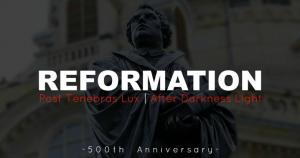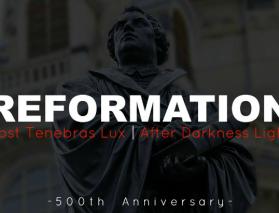In the past article we laid out the Roman Catholic doctrine of justification. Now we turn to discuss the Protestant view of justification. One can find a brief definition of justification in the Westminster Shorter Catechism’s answer to question 33, “Justification is an act of God’s free grace, wherein he pardoneth all our sins, and accepteth us as righteous in His sight, only for the righteousness of Christ imputed to us, and received by faith alone.”[1] By nature, the Protestant view is more diverse than the Roman Catholic view, given that there is no one central authority in all of Protestantism as there is in the Roman Catholic Church. In order to provide focus to this article I will discuss the view of justification espoused by the Historic Protestant confessions: the Westminster Confession of Faith, the Thirty Nine Articles of the Anglican Church, the 1689 Baptist Confession of Faith, and the Second Helvetic Confession. The Historic confessions that I will be using in this article were all written after the Council of Trent and are often written with it in view.
These Historic Protestant confessions emphasize the freedom  of God in giving the grace of justification; both the Westminster Confession and the Baptist Confession affirm that, “those whom God effectually calls, He also freely justifies.”[2] The grace of justification is freely given because there is nothing we can do to merit it, and not only do we not merit God’s grace, we demerit it by our sin. Therefore, when God decides to bestow His grace upon certain people He does so absolutely freely.
of God in giving the grace of justification; both the Westminster Confession and the Baptist Confession affirm that, “those whom God effectually calls, He also freely justifies.”[2] The grace of justification is freely given because there is nothing we can do to merit it, and not only do we not merit God’s grace, we demerit it by our sin. Therefore, when God decides to bestow His grace upon certain people He does so absolutely freely.
In the Historic Protestant view, neither baptism nor any other work is the instrument of justification, but faith alone. “Faith, thus receiving and resting on Christ and His righteousness, is the alone instrument of justification.”[3] As we saw earlier, the Roman Catholic Church affirms justification by faith, but not by faith alone – and it is exactly this that is the core of the Historic Protestant definition of justification. The Second Helvetic Confession states, “we receive this justification, not through any works, but through faith in the mercy of God and in Christ…sinful man is justified by faith alone in Christ.”[4] The Thirty-Nine Articles say, “We are accounted righteous before God, only for the merit of our Lord and Saviour Jesus Christ by Faith, and not for our own works or deservings. Wherefore, that we are justified by Faith only, is a most wholesome Doctrine.”[5] The Formula of Concord also affirms, “that we poor sinners are justified before God and saved solely by faith in Christ.”[6] Faith is opposed to all works and is alone the instrument of justification – if anything else is added to faith then justification is no longer sola fide.
In opposition to the Roman Catholic system of justification as a process continuing throughout the life of the believer, Historic Protestantism views it as a once for all, forensic declaration made by God as judge that takes place at conversion. The confessions make this clear by their language of “counting/imputing”. The Westminster Confession states that God justifies those whom He calls, “not by infusing righteousness into them, but by pardoning their sins, and by accounting and accepting their persons as righteous…by imputing the obedience and satisfaction of Christ unto them.”[7] The Thirty-Nine Articles uses the same language, that we are “accounted righteous before God”[8], and the Second Helvetic Confession states, “we are justified, that is, absolved from sin and death by God the Judge”[9], lastly, not to be outdone, the Formula of Concord affirms that the righteousness of faith benefits the believer “solely on account of the obedience of Christ…through faith alone, is reckoned by pure grace to all true believers as righteousness.”[10]
This justification by God as being “accounted righteous” is no legal fiction, but only possible because of the dual nature of justification: the forgiveness of sins and the imputation of Christ’s righteousness. First, justification entails the forgiveness of sins. The 1689 Baptist Confession states that God justifies those whom He calls “by pardoning their sins.”[11] The first part of the definition of justification in the Second Helvetic Confession is “to remit sins, to absolve from guilt and punishment.”[12] The Formula of Concord also affirms that justification means “‘absolve,’ that is, pronounce free from sin.”[13] This forgiveness of sins is only possible because of Christ’s sacrifice paying the penalty of sin that we deserved. The 1689 Baptist Confession says, “Christ…did, by the sacrifice of himself in the blood of his cross, undergoing in their [those who are justified] stead the penalty due to them, make a proper, real, and full satisfaction to God’s justice in their behalf.”[14]
Second, justification entails the imputation of Christ’s righteousness to the believer. Whereas the Catholic doctrine teaches that Christ’s righteousness is ‘infused’ or ‘imparted’ to the believer in such a way that the believer actually becomes righteous and acts righteously, the Historic Protestant position has been that Christ’s righteousness is imputed to the believer by faith. The Second Helvetic Confession says, “God alone justifies us, and justifies only on account of Christ, not imputing our sins to us but imputing his righteousness to us.”[15] The Westminster Confession says that God justifies, “by imputing the obedience and satisfaction of Christ unto them.”[16] The 1689 Baptist Confession explains it in slightly different wording, saying, “his [Christ’s] obedience and satisfaction were accepted in their stead.”[17] The Formula of Concord asserts that Christ, “by his perfect obedience redeemed us from our sins, justified and saved us.”[18] The active obedience of Christ is very important in the Historic Protestant scheme of justification, for not only does Christ pay the penalty for our sins by His death, but also does He credit into our account His sinless, completely obedient life.
What then is the role of good works in the Historic Protestant tradition? Certainly, works are not the instrument or basis of justification. Good works testify to the true saving faith of a believer, just as a good tree bears good fruit, so true saving faith bears good works. The Westminster Confession says good works, “are the fruits and evidences of a true and lively faith”[19] and that the believer’s ability to do them is “wholly from the Spirit of Christ.”[20] The Second Helvetic Confession says much the same, “truly good works grow out of a living faith by the Holy Spirit.”[21] However, in direct contradiction to the Roman Catholic view that we can merit an increase in grace by our works, even to attain eternal life, the Protestant confessions flatly deny that our good works have any meritorious value in regards to salvation. The 1689 Baptist Confession says, “We cannot by our best works merit pardon of sin or eternal life at the hand of God… as they [our good works] are wrought by us they are defiled and mixed with so much weakness and imperfection, that they cannot endure the severity of God’s punishment.”[22] The Formula of Concord explicitly rejects the teaching that justification means, “to be made really and truly righteous on account of the love and virtues which are poured into them [the justified] by the Holy Spirit”[23] and at the same time affirms that good works necessarily follow justification.[24]
In sum, the Historic Protestant view is that justification is a free gift of God’s grace, by which He pardons the sins of the ungodly and declares them righteous on the basis of the imputed righteousness of Christ. Works earn no merit before God and do not serve in any way as the basis for our justification but instead are the fruit of a changed heart.
Other Articles In This Series:
- Reformation 500: Sola Fide and The Roman Catholic Church
- Reformation 500: Sola Fide and The Historic Protestant View
- Reformation 500: Sola Gratia to a World That Needs It
- Reformation 500: Sola Fide, The Apostle Paul and Romans 3-4
- Reformation 500: Is Sola Scriptura a Blueprint for Anarchy?
[1] Westminster Shorter Catechism. Carlisle: Banner of Truth Trust, 2008. Question/Answer #33 [2] “The Westminster Confession of Faith.” 1646. http://files1.wts.edu/uploads/pdf/about/WCF_30.pdf (accessed October 14, 2015). Chapter XI, I. cf. 1689 Baptist Confession of Faith: Chapter XI, 1 [3] Westminster Confession of Faith, op. cit., II [4] Bullinger, Heinrich. “The Second Helvetic Confession.” Christian Classics Ethereal Library. 1564. https://www.ccel.org/creeds/helvetic.htm (accessed October 15, 2015). Chapter XV (emphasis added) [5] “The 39 Articles of Religion.” 1546. https://www.churchofengland.org/prayer-worship/worship/book-of-common-prayer/articles-of-religion.aspx (accessed October 14, 2015). Article XI (emphasis added) [6] “Formula of Concord.” In The Book of Concord, edited by Theodore Tappert, 463-636. Philadelphia: Fortress Press, 1959. Epitome, Article III, Paragraph 1 (emphasis added) [7] Westminster Confession of Faith, Chapter XI, I. (emphasis added) cf. 1689 Baptist Confession of Faith: Chapter XI, 1 [8] Thirty-Nine Articles, Article XI (emphasis added) [9] Bullinger, Chapter XV (emphasis added) [10] The Formula of Concord, Solid Declaration, Article III, Paragraph 4 (emphasis added) [11] 1689 Baptist Confession, Chapter XI, 1 [12] Second Helvetic Confession, Chapter XV [13] Formula of Concord, Epitome, Article III, Paragraph 7 [14] 1689 Baptist Confession, Chapter XI, 3 [15] Second Helvetic Confession, Chapter XV [16] Westminster Confession of Faith, Chapter XI, I [17] 1689 Baptist Confession, Chapter XI, 3 [18] Formula of Concord, Solid Declaration, Article III, Paragraph 4 [19] Westminster Confession, Chapter XVI, II [20] Westminster Confession, op. cit., III [21] Second Helvetic Confession, Chapter XVI [22] 1689 Baptist Confession, Chapter XI, 5 [23] Formula of Concord, Solid Declaration, Article III, Paragraph 62 [24] Formula of Concord, op. cit., Paragraphs 26, 27













